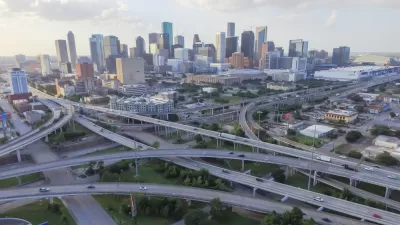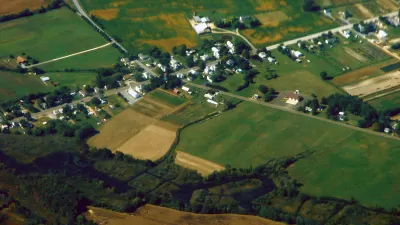The study compares data between 1993 and 2009.

A Wildlife Conservation Society press release announces the findings of a new study published in the Nature Communications journal, which finds that humanity's footprint is now growing slower than the economy and population.
Specifically, the "study finds that while the global population grew 23 percent and the global economy grew 153 percent between 1993 and 2009, the global human footprint grew only 9 percent," according to the press release.
Despite that seeming good news, the study still has plenty of bad news to go around. According to its findings, three-quarters of the planet has been altered, while "97 percent of species-rich regions are seriously altered."
Researchers from the University of Northern British Columbia, the University of Queensland, the Wildlife Conservation Society (WCS), and six other universities completed the study.
FULL STORY: Human footprint surprisingly outpaced by population and economic growth

Planetizen Federal Action Tracker
A weekly monitor of how Trump’s orders and actions are impacting planners and planning in America.

Restaurant Patios Were a Pandemic Win — Why Were They so Hard to Keep?
Social distancing requirements and changes in travel patterns prompted cities to pilot new uses for street and sidewalk space. Then it got complicated.

Map: Where Senate Republicans Want to Sell Your Public Lands
For public land advocates, the Senate Republicans’ proposal to sell millions of acres of public land in the West is “the biggest fight of their careers.”

Maui's Vacation Rental Debate Turns Ugly
Verbal attacks, misinformation campaigns and fistfights plague a high-stakes debate to convert thousands of vacation rentals into long-term housing.

San Francisco Suspends Traffic Calming Amidst Record Deaths
Citing “a challenging fiscal landscape,” the city will cease the program on the heels of 42 traffic deaths, including 24 pedestrians.

California Homeless Arrests, Citations Spike After Ruling
An investigation reveals that anti-homeless actions increased up to 500% after Grants Pass v. Johnson — even in cities claiming no policy change.
Urban Design for Planners 1: Software Tools
This six-course series explores essential urban design concepts using open source software and equips planners with the tools they need to participate fully in the urban design process.
Planning for Universal Design
Learn the tools for implementing Universal Design in planning regulations.
Heyer Gruel & Associates PA
JM Goldson LLC
Custer County Colorado
City of Camden Redevelopment Agency
City of Astoria
Transportation Research & Education Center (TREC) at Portland State University
Camden Redevelopment Agency
City of Claremont
Municipality of Princeton (NJ)





























